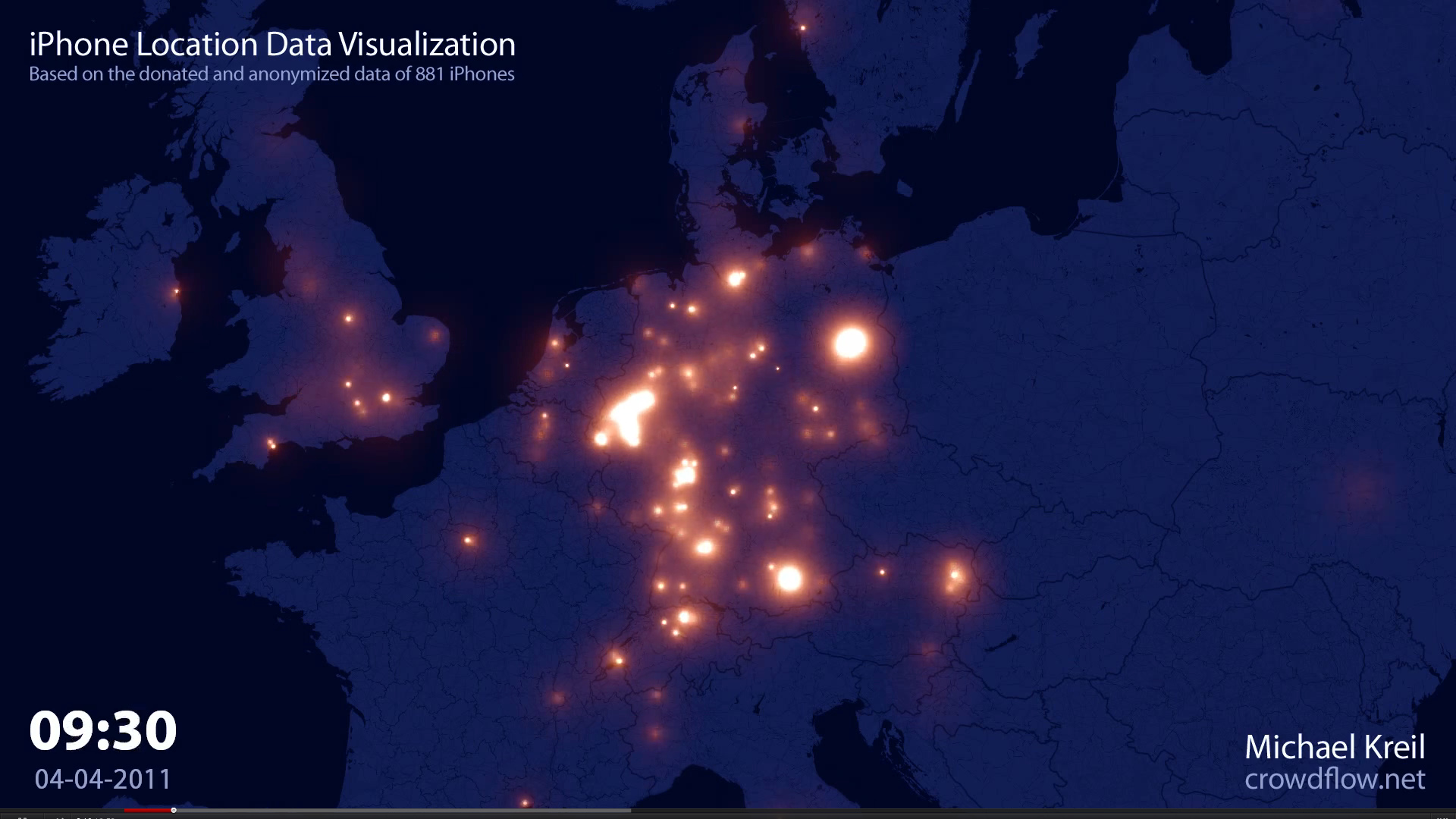Yesterday’s vote in the Swedish Parliament about data retention — which fortunately went well for now — unveils a deeper issue with the way our liberties are being systematically eroded to please special interests. Who makes our laws?
The newly-elected Member of Parliament Maria Abrahamsson wrote on her blog that she would vote YES to traffic data retention, for the sole reason that it was better than today’s unregulated case where the operators stored the traffic data records indefinitely and would give it to practically anybody who asked.
If this had been the case, it would have made sense to vote for a law which mandated storage for six months and which prevented giving the data to anyone but law enforcement authorities. It would have been a privacy-positive step.
However, Mrs. Abrahamsson had been lied to — deliberately, one must assume. This is not the first case and it unveils a significant problem in the entire lawmaking process. The Members of Parliament are held to account in every election for how they have voted, and rightly so, but they have no means of studying every issue in-depth. That would be the equivalent of being an expert in every field, no matter how narrow — it isn’t possible within the known laws of physics.
So the Members of Parliament are supplied with scene-setting decision backgrounds by civil servants. If the data is faulty, the MPs have no means of discovering that without becoming independent experts in the field themselves.
Going back to the case of traffic data retention, the reality was — and still is — that telecom operators in Sweden are explicitly banned from storing traffic data for a message any longer than is needed to deliver the message in question, with the exception when traffic data is needed for invoicing, in which case they may store it for as long as needed for invoicing and not a second longer. So Mrs. Abrahamsson had based her decision on faulty data which she had been deliberately supplied.
I brought up this issue in a panel yesterday evening — that it is not our Members of Parliament who make our laws, but the unaccountable, invisible civil servants who provide them with background material and scene-setters for each decision — and the MPs and ex-MPs who were present on the panel, much to my surprise, agreed completely.
It also explains why members of the copyright lobby are walking around — quote — like children in the house — endquote — in the Department of Commerce, which houses the civil servants preparing decisions on copyrights and patents.
This is a real democratic problem that goes to the roots of representative democracy, or maybe even to democracy as a concept. Is there a quick fix?
Other bloggers on the postponement of the DRD implentation: Anna Troberg, Henrik Alexandersson, Svensson, Do or Die, Jöran Fagerlund, Peter Andersson







RT @Falkvinge: Who makes our laws? On yesterday’s data retention postponement. http://is.gd/4WncnD #dld #infopolicy #laws #transparency #vds #svpol
I’m wondering if we could get some progress by having transparency. I assume that the information from the civil servants comes both in spoken and written form. On the stuff given in written form, shouldn’t it be available for public scrutiny?
Similarly, when lobbyists speak to civil servants, shouldn’t the discussions be available for public scrutiny?
I think these measures would help somewhat, but I’m not sure how much. Other ideas?
Yes there are a fix. It is even quite simple and can be described with one word, accountability. When you know that you are going to be held responsible for what you do, you will make sure that you do it right.
You have said many times that the power should be transparent and the citizens not. This is part of that. I have described many times, you have even qouted me, what happens with people put under surveillance, how they start to do less and only obey order in fear of doing wrong. This works just as well the other way around when it is the power that is under surveillance. It is the power that should do only what is right and not running around trying things on a whim.
I take two examples. First, think of how the patent system has developed the last 30 years, how its purpose got inverted. The social contract in exchange of a monopoly right, that told society that it was economically viable to change the dynamics of fair and free markets, in consideration -very important- in consideration for a disclosure of something that ultimately advances the cause of science, technology or industry. That’s what patents were supposed to be. But you know what the system has become instead. Now think if the patent establishment some how could have ben held responsible for any bad effect on society, do you think we would have seen the same development then? With people in the system that actually got fired or in bad cases was sent to prison. Of course not, they would have followed the law, and its intent very conservatively, not constantly pushing the envelope in the direction we have seen for at least two decades.
Second. Look at the change in the swedish voting system, when we got deprived of the right to hold individuals in the reichstag accountable by striking them out on the ballot paper. Today we cannot throw out the rotten eggs without thorowing away the hwole basket, sometehing people are reluctant to do. No hard line socialdemocrat would vote for another party just because they think Tomas Bodström is a rotten egg. What the change from striking out to voting in has resulted in is less accountability, over time a lot less. Today we vote for sugar sweet words, and once they have taken them self in, they turn their attention to how they should stay in, upwards in the political hireachy. This results in pyramid-building of the worst kind, where the top gets almost dictatorial power since those below are doing what they can to be nice little puppies liked by their leader.
So, the answer is accountability. Not from the top down, but from the bottom up. That is how democracy is safeguarded. Think there are some very nice quotes from the founding fathers of the USA on this subject too.
hear, hear!
While I agree that it’s a shame that a MEP such as Abrahamsson who normally is quite courageous and speaks up for herself votes this way I must say that your statement about her motivation seems baseless. I cannot find anywhere in that blog post where she says that going from a supposedly unregulated situation to a regulated one (the old pseudo argument used in for example the debate about the FRA wiretapping law) is what motivates her. The reason why she voted yes seems more related to peer pressure, keeping her party united and an willingness to be a good team player in the EU.
Maybe she has said what you claim she has said somewhere else. In that case I guess it would be good to point readers in that direction.
Perhaps I overinterpreted Mrs. Abrahamsson, but I figured this was what she meant in this passage:
As Mrs. Abrahamsson correctly states that retention is damaging to privacy, and implies that it is allowed, I have assumed that she has been “informed” by hawks like Johan Pehrson et al. that this is something “that the telcos are already doing in an unregulated manner”, which is far from the truth. Mrs. Abrahamsson is plain wrong in the statement that data retention is allowed; it is expressly forbidden. As this was her basis for the decision, she is at least in part basing her reasoning on faulty data.
But there is arguably a bit of my own conclusions there, you are right in that.
PS, added later: I am not trying to excuse anyone — the people voting yes to this monster will be held accountable, and in particular those who promised to stand up for the values of privacy and liberties. But I am also trying to see where the problem really lies. Call it a bit of results-orientation, if you like, or downright cynisism.
But if you study her quote more closely you see that it directly contradicts your point. She says that irrespectively of the rention period it’s this change to allow retention at all that breaks through former privacy barriers. Her argument that prolonging retention periods thereafter doesn’t do that much extra harm to privacy I find very weak, but I agree with her point that it’s crossing the line where all citizens are treated as suspected criminals that is most problematic. It’s just strange that she doesn’t seem to reach more sensible conclusions based on that.
I’m sometimes wondering if it’s not slightly counter effective to always critize the slightly more sensible MEPs the most and let all the gray and unvisible ones get away easily.
In any case I think your main point may still be valid, irrespectively of the exact interpretation of what Abrahamsson said.
@Tor
“I’m sometimes wondering if it’s not slightly counter effective to always critize the slightly more sensible MEPs the most”
In the case of Maria Abrahamsson she has been elected because she promised to take a firm stand against more privacy invading laws, such as data retention. This is one of her profile areas and she should be an expert in this field. It should not be possible for any civil servant to get away with lies, because she should know better. By breaking her promise to the voters she has in my opinion committed a crime comparable to fraud. I think that just criticism is letting her off too easy, I think that she should go to jail for a few years.
The poor reasoning and lack of all logic in her blogpost seems to indicate that she just tries to motivate to herself why she will vote yes, it’s seems like some kind of psychological defense mechanism more than anything else.
“Mrs. Abrahamsson is plain wrong in the statement that data retention is allowed; it is expressly forbidden.”
“[…..]with the exception when traffic data is needed for invoicing, in which case they may store it for as long as needed for invoicing and not a second longer. ”
I agree with Tor – why critizise the MPs who do take this seriously and think about it? She might not agree with you – but she IS taking it seriously!
@Kurt,
Mrs. Abrahamsson is not being criticized for not taking the issue seriously, but for voting the totally opposite way to what she promised before she was elected.
RT @piratbloggar: Falkvinge on Infopolicy: Who makes our laws?:
Yesterday’s vote in the Swedish Parliament about data reten… http://tinyurl.com/48cv34e
Rick,
Actually it comes down to being in touch with your politicians. If a politician is getting two different stories, one from the bureaucrats and one from the constituent, and the politician checks, and the constituent is right, the politician becomes far less trusting of the bureaucrats.
I’ve used this tactic. Yes, it takes a lot of work. But if you are honest, and always tell the truth as you know it, the politician when faced with you has to go back to the bureaucrat and ask, “Are you sure of that information,” which puts the bureaucrat on notice. If the bureaucrat has any brains it will then say, “Opps, tiny mistake here,”, if not it will get fired (see Konrad von Finkelstein who is on his way out).
Wayne
If accessible, that is an option, but most MPs are so swamped they will just wave away a protesting citizen as just another crazy loudmouth. The bandwidth is a problem.
RT @Falkvinge: Who makes our laws? On yesterday’s data retention postponement. http://is.gd/4WncnD #dld #infopolicy #laws #transparency #vds #svpol
RT @falkvinge Who makes our laws? http://is.gd/4WncnD #dld #infopolicy #laws #transparency #vds
There is no need to invent colorful explanations about how peer pressure or incorrect information caused her to vote this way.
This is what she believes. When given the choice, this is how she voted.
Why try to make her into something she isn’t?
RT @rixstepnews: Falkvinge: Who makes our laws? http://is.gd/4WncnD #Sweden #Law #democracy
RT @falkvinge Who makes our laws? http://is.gd/4WncnD #dld #infopolicy #laws #transparency #vds
RT @RoyalmitKaese: RT @rixstepnews: Falkvinge: Who makes our laws? http://is.gd/4WncnD #Sweden #Law #democracy
It’s called group think to vote like the group you’re belonging to. If you look in the eyes of your group members or the lobbyist it’s easy to fall into the trap. Also considered your position is dependent of them. My conclusion is that we need to bring down some power to the people by representative direct democracy and let people delegate to their own experts, party or organization and be able to change representative at any time or vote by themselves.